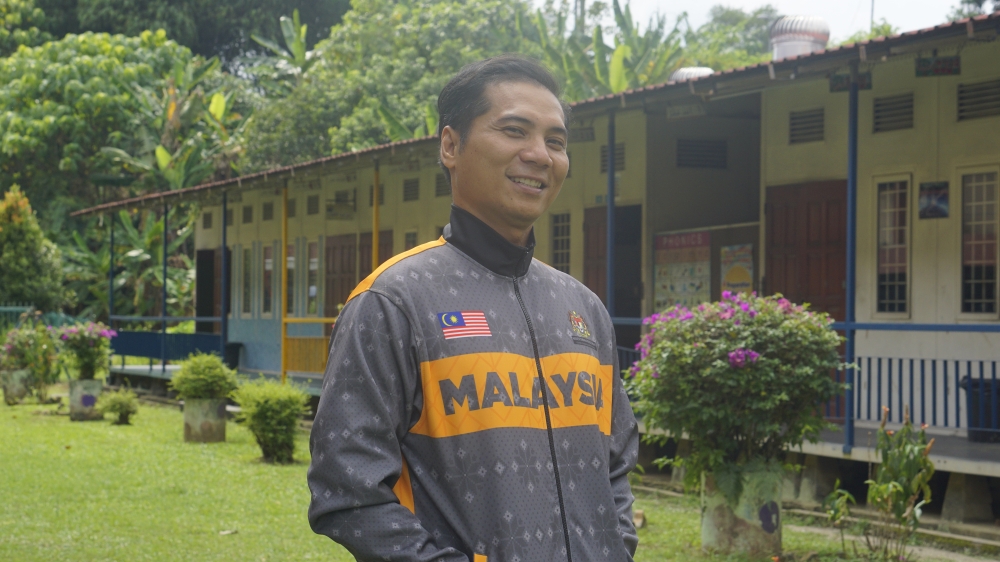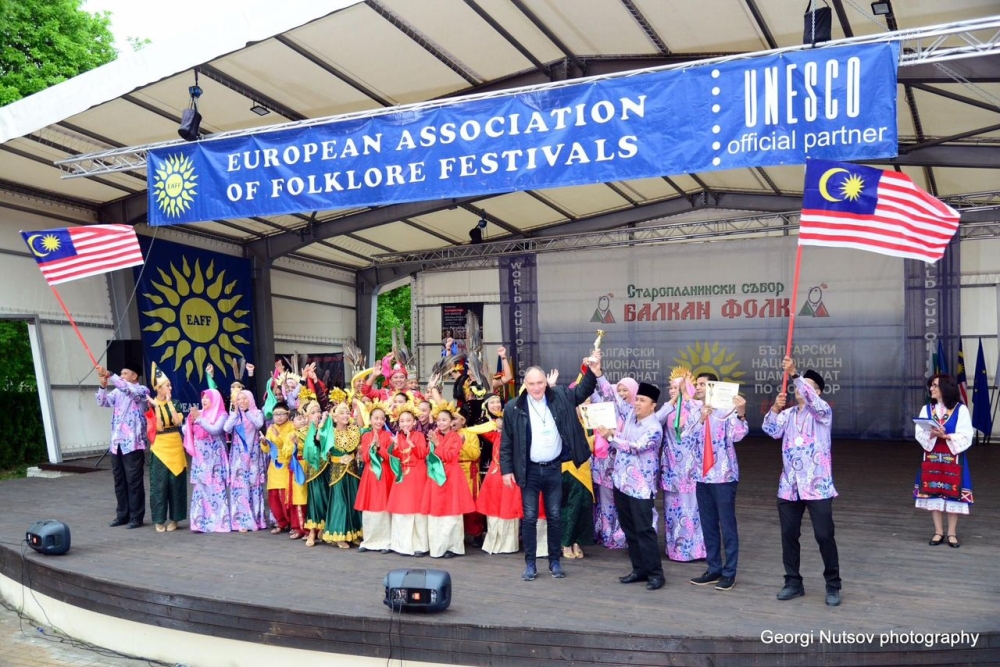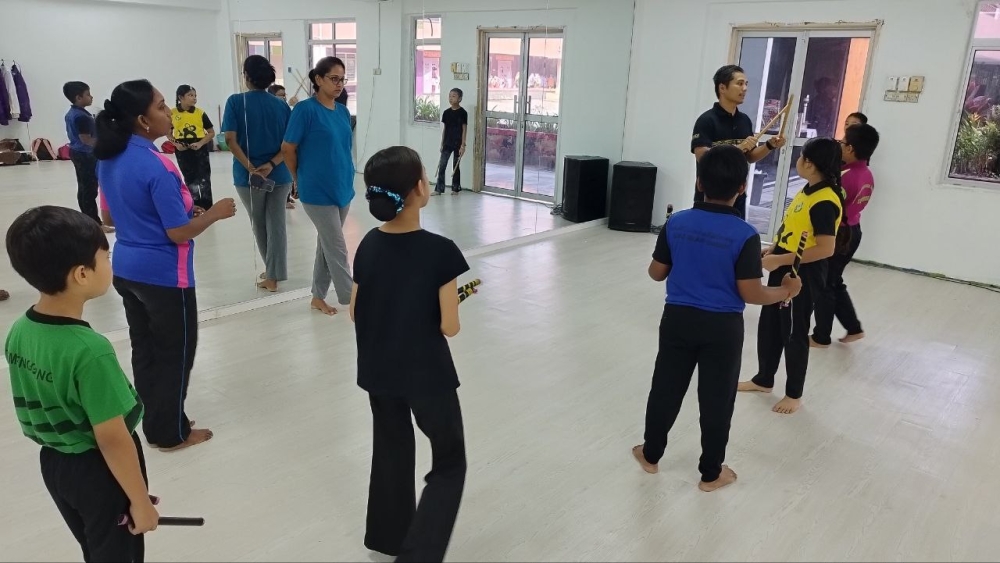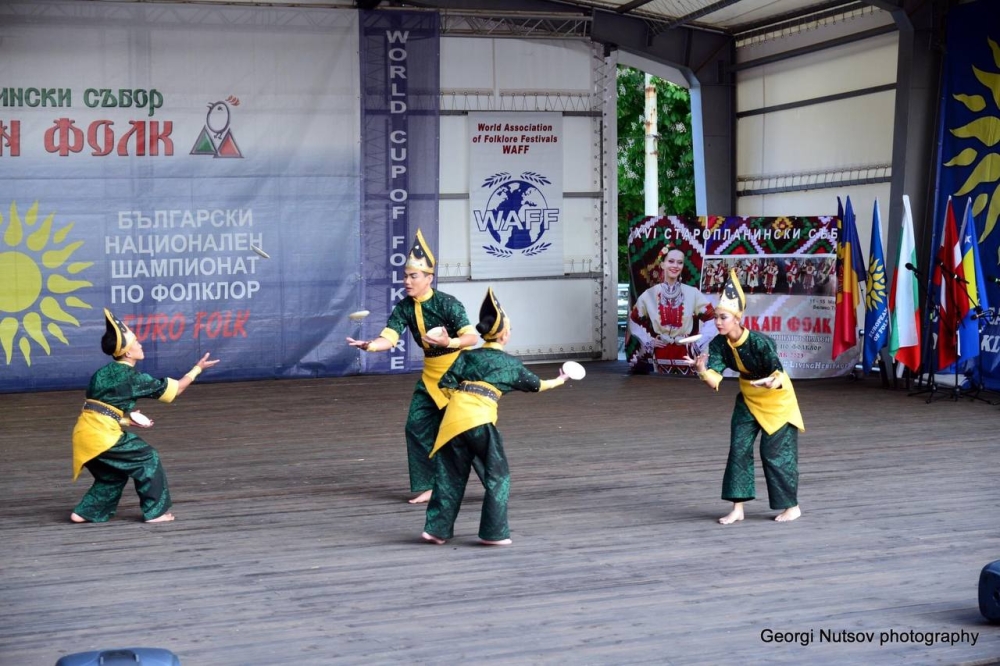KUALA LUMPUR, June 8 — Social media has can be a bane to many but for primary school teacher and dancer, Abdul Razak Abdul Hamid, it's an advantage to get kids to explore dancing.
He said this was because the emergence of video sharing platform, TikTok has made dancing a trend amongst the young.
Social media, overall, has allowed Malaysian youth to be more open in expressing themselves via via music, personal opinions and performance arts.
It is this growing interest that has led him to bringing the Gombak Cultural Group (GCG) to Veliko Tarnovo, Bulgaria and being crowned as runner up at the Eighth World Cup of Folklore recently,
"Although the dances on TikTok are not traditional dances, they’ve made it a trend amongst youths.
"Even those who have never danced before are trying it out just to keep up with the trend.
"TikTok is one of the reasons these kids are not afraid to dance anymore,” Razak told Malay Mail.

This can be considered a turn-around as according to Razak, in comparison to his schooling days, many would avoid joining dance classes and opt for sports instead due to fear of public perception and pressure.
There was also constraint from parents where some might see dancing and performance arts as taboo and a waste of time.
This is in comparison to current times where parents are more open and supportive of their children's interests.
Local public schools are also trusting these students by supporting them to compete in performing arts on an international level.
Showcasing Malaysian Culture at the World Stage

Razak, who’s also the lead choreographer for GCG shared that the willingness of students to express themselves and unwavering support from parents and the district education offices (PPD) played a huge role in their success.
The annual competition, organised by the European Association of Folklore Festivals which took place from May 11 until May 15 saw 152 cultural groups from around the world competing this year.
The GCG, represented by 21 students and 10 teachers from 11 schools under the Gombak's PPD, managed to bring home three gold medals as well as the Grand Prix prize for overall best performance.
The group brought six traditional Malaysian dances to the world stage including Nirmala, Tarian Magunatip, Tarian Piring, Tarian Sewang, Kolattam and Joget Gamelan.GCG is made up students and teachers coming from SMK Taman Melawati, SMK Seri Gombak, SMK Seri Keramat, SK Bukit Rawang Jaya,SK Taman Melawati, SK 2 Kuala Ampang, SK Selayang Utama, SK Bandar Baru Selayang 2, SK Seri Kundang, SK Sungai Buloh and SJKT Bukit Darah.
During the world cup, the group was also joined by 5 officers from Gombak’s PPD and the State Education Department.
Thorough Preparation, Intensive Training

"We’ve come a long way from home and we are not going to waste this opportunity. We have to and we need to give our best, for Malaysia.
"Win or lose is just part of competing but our effort, determination and sacrifices will not go unnoticed and I believe in that,” Razak recalled saying to his team before the competition.
Razak who’s no stranger when it comes to international traditional dancing competitions shared that he and his team began training for the world cup since March this year.
The SK Sungai Buloh teacher shared that it was not an easy task to train the students as every student has their own strength and weaknesses and the only way to unify them was through consistent training.
The group trained through the fasting month of Ramadan at night and on weekends.
They also cut their Hari Raya holidays short just for the sake of perfecting their craft.
"There were those who were on the verge of giving up, that’s normal, any coach would go through the same experience. Maybe they’re pressured because this involves teamwork, and whenever they train, they will train together.
"When one of them fails, the others would have to repeat it again until they get it right and the pressure might get into their heads and eventually lose it.
"Some even cried and I would let them cry so that they could let it all out and once it’s out of their chest then only I would console them and explain to them why I’m being strict with the training,” he said.
In terms of bringing traditional dances from different cultures and tribes in Malaysia to the world stage, Razak consulted and gained permission from experts of each respective tribe in advance and even had the group’s costumes made by them.
This included the outfits for their Tarian Sewang from the MahMeri tribe as well as following the proper steps for the Tarian Magunatip which was from the Murut tribe in Sabah.

Razak also shared that their success at the Eighth World Cup of Folklore has helped in boosting the confidence in the students while also exposing them to the larger world outside.
He added that these kinds of international competitions can also help students, especially those who aren’t academically inclined as Razak believes that they still have so much more to offer.
"These students, if they’re not good in academics, they would usually excel in extra curricular activities and as teachers, it's important for us to be aware of this."We’re responsible to bring out the talent in them and polish it so that they can shine,” he said.






















